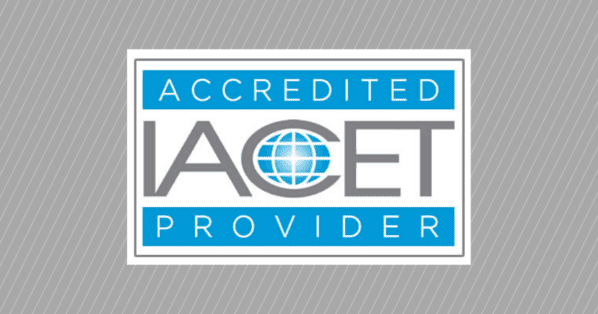The National Council of Examiners for Engineering and Surveying (NCEES) is a national nonprofit organization dedicated to advancing professional licensure for engineers and surveyors. NCEES creates, administers, and scores the national engineering licensing exams better known as the FE and PE exams. Below are five frequently asked questions NCEES receives about engineering licensure.
1. What are the steps to becoming a licensed professional engineer (P.E.)?
In the United States, licensure for the engineering profession is regulated by each state. While each state licensing board has its own laws regarding engineering licensure, there is a general three-step process for licensure candidates:
- Education
Generally, engineering licensing boards require P.E. candidates to have an EAC/ABET-accredited bachelor’s degree. Check the requirements of your state licensing board. Each state licensing board has varying educational requirements. - Exams
Licensure candidates typically must pass the Fundamentals of Engineering (FE) exam and the Principles and Practice of Engineering (PE) exam. - Experience
Most states require four years of acceptable, progressive, and verifiable work experience in the industry.
2. What is the purpose of engineering licensure?
Professional licensure exists to protect the health, safety, and welfare of the public. A person who is licensed has met certain standards. This is good for the person who holds a license because a license is a strong qualification, but it’s also good for the public. A license protects the public by preventing unqualified or unethical persons from practicing.
3. What are the benefits of having your professional engineering license (P.E.)?
Being a licensed professional engineer will open career doors and help you stand out in a stack of resumes. You never know which way your career may turn. You may be working in an industry that does not require you to be a licensed engineer, but that doesn’t mean 10 years from now, five years from now, or one month from now that a job may appear that does require a P.E. license. Therefore, it is recommended that you get your P.E. license as soon as possible.
4. How do you register for the FE exam?
The FE exam is a computer-based exam administered year-round at NCEES-approved Pearson VUE test centers. Register for an FE exam by creating and logging in to your MyNCEES account at www.NCEES.org and following the onscreen instructions.
5. What is the NCEES Engineering Education Award and how can I participate?
The NCEES Engineering Education Award recognizes college engineering programs for engaging their students in collaborative projects with licensed professional engineers. It was established to promote understanding of the value of licensure and to encourage partnerships between the engineering profession and education. At the discretion of the award jury, up to eight cash awards are presented each year. The winning engineering departments/colleges decide how to best use the cash award. For more information visit www.ncees.org/award.
This content has been contributed by NCEES as part of a promotional digital content program.
Related content:
- Podcast: First Female President of NCEES – Patty Mamola
- Podcast: Engineering Licensure with NCEES
- 5 Writing Tips for Including Volunteer Experience on a Resume
- 9 Essential Tips to Reboot and Refuel Yourself
- 10 Tips to Improve Your Technical Writing Skills
- 10 Tips for Writing a Great Engineering Resume
Author
-

SWE Blog provides up-to-date information and news about the Society and how our members are making a difference every day. You’ll find stories about SWE members, engineering, technology, and other STEM-related topics.






